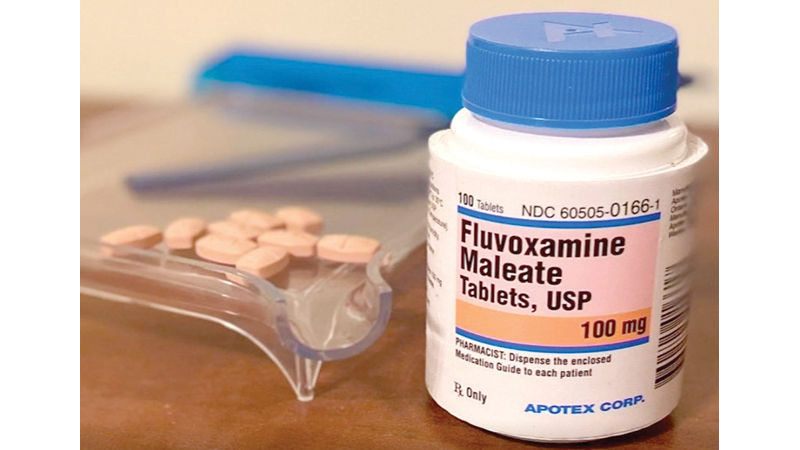An old drug is being tested as a possible new early treatment for COVID-19. There are clues that Fluvoxamine, a 40-year-old antidepressant might prevent severe lung damage in COVID patients. It’s now being tested in a large randomized clinical trial in the U.S. and Canada.
The story begins with a psychiatrist home sick with COVID symptoms. Washington University psychiatrist Dr. Angela Reirsen was recuperating and considering how she could help herself and others when she remembered a study with mice and Fluvoxamine. The drug stopped sepsis in the mice, an immune system response that is believed to cause runaway inflammation that damages organs and can be deadly. It’s believed that a similar reaction may occur in COVID patients.
Reirsen contacted another psychiatrist Dr. Eric Lenze, who specializes in finding new uses for drugs already approved by the FDA. He saw her rationale right away. “Angela presented a very compelling and innovative case for this drug,” he tells Alfonsi. “And it turns out that there’s a lot of properties of psychiatric drugs -- like safety and ease of use -- and the fact that they can get into the body quickly that makes them actually ideal for repurposing.”
Lenze was able to get funding for a small, randomized clinical trial with the help of Washington University, where he worked, and a Silicon Valley entrepreneur Steve Kirsch. The trial results were compelling and published in the Journal of the American Medical Association. The study included 152 patients, 80 of whom got the Fluvoxamine. “So the results were really pretty incredible. Out of the 80 people who received Fluvoxamine, none, zero of them deteriorated versus 8 percent of the people who got the placebo,” said Lenze.
The editors at JAMA were impressed, but did not recommend it for widespread use. They wanted confirmation in a larger trial.
Alfonsi reports that night, Dr. David Seftel learned of the Lenze study on a webinar he hosted. He cares for hundreds of workers at Golden Gate Fields, a thoroughbred racetrack in California. He was skeptical. “I’m a born skeptic. Right after the webinar, I took a deep dive into the science,” says Seftel. “And then I looked at Eric Lenze’s paper. A paper that was selected out of 10,000 other papers by the JAMA for publication because its methodology was strong. This is something that I felt comfortable with taking to patients,” he tells Alfonsi. “In this particular circumstances, strong biochemistry, great initial clinical results, minimal downside. I felt I had to act.”
Seftel offered a prescription for fluvoxamine to newly diagnosed COVID patients at Golden Gate Fields.
“Sixty-five patients elected to take Fluvoxamine. 48 declined.” Then Seftel says, “12.5% of all those who refused Fluvoxamine ended up hospitalized and one died. In the group that did take Fluvoxamine, none of them were hospitalized.” Asked it could be a fluke, Seftel responds, “I don’t believe so. You cannot influence a virus that is as wily and as wicked as COVID with a fluke.” (CBS)


